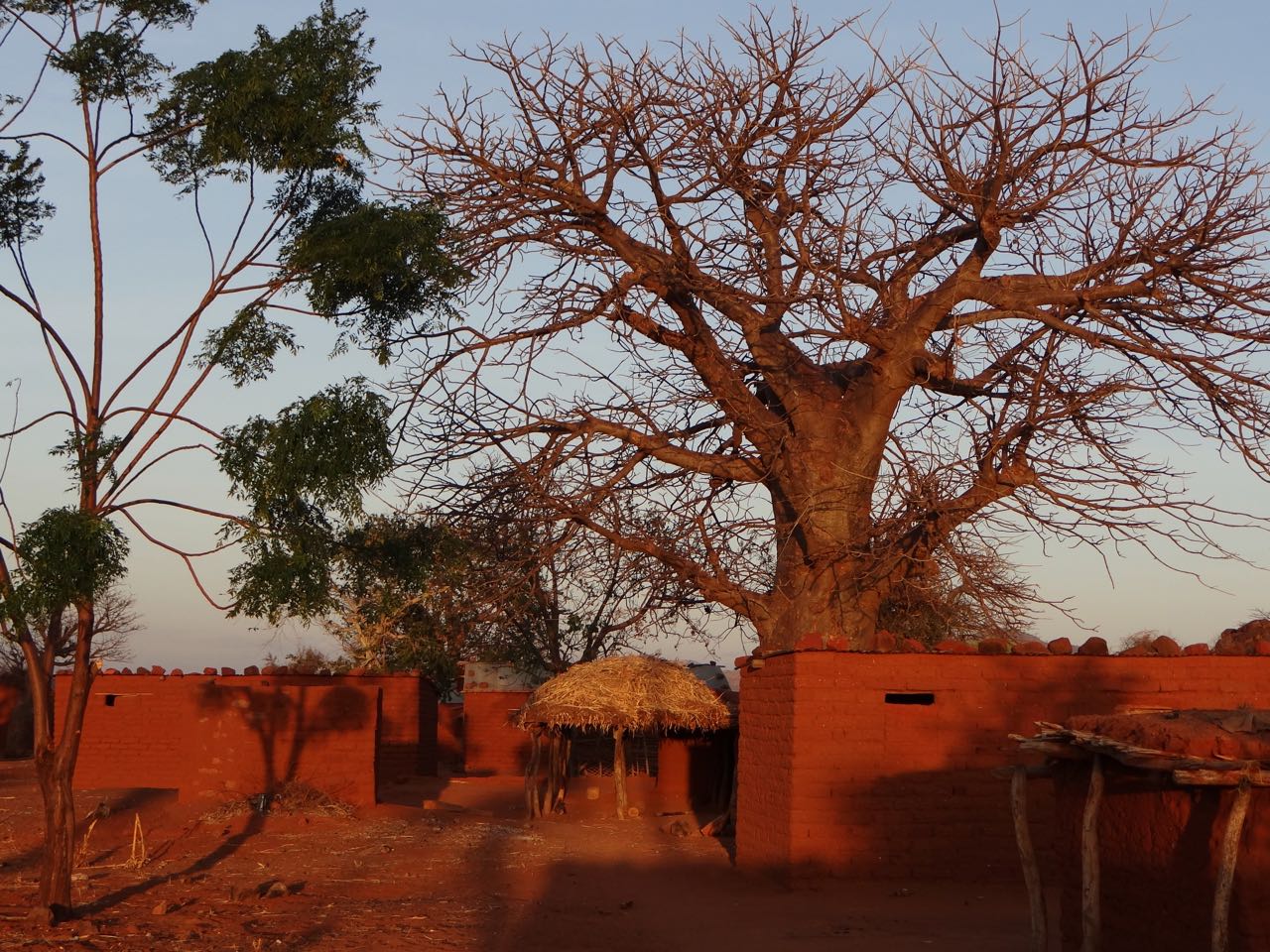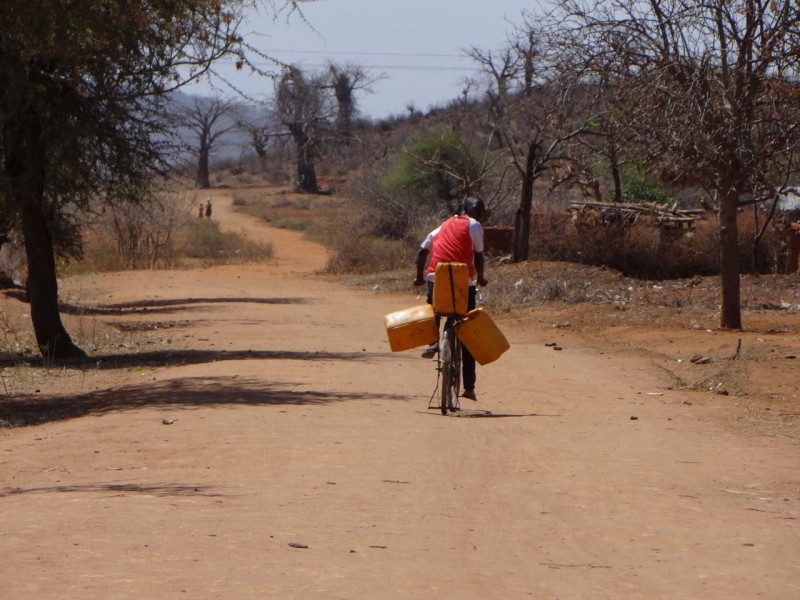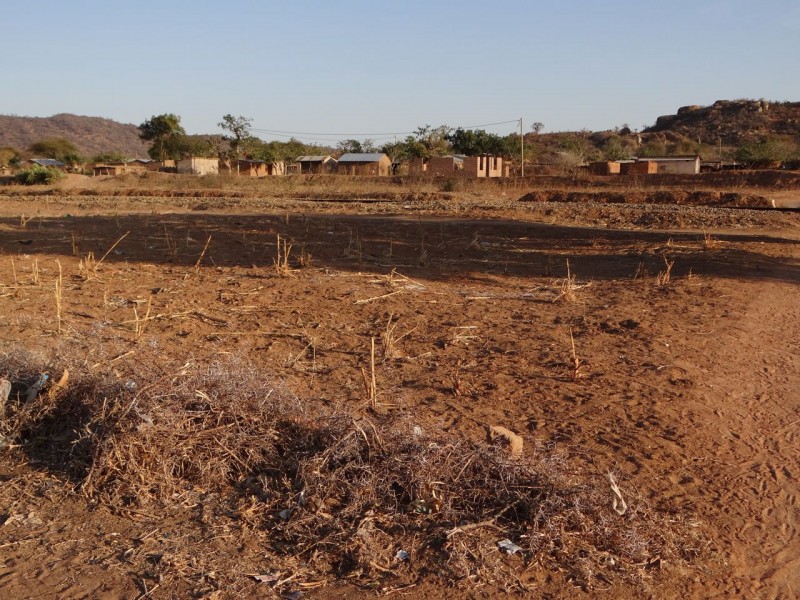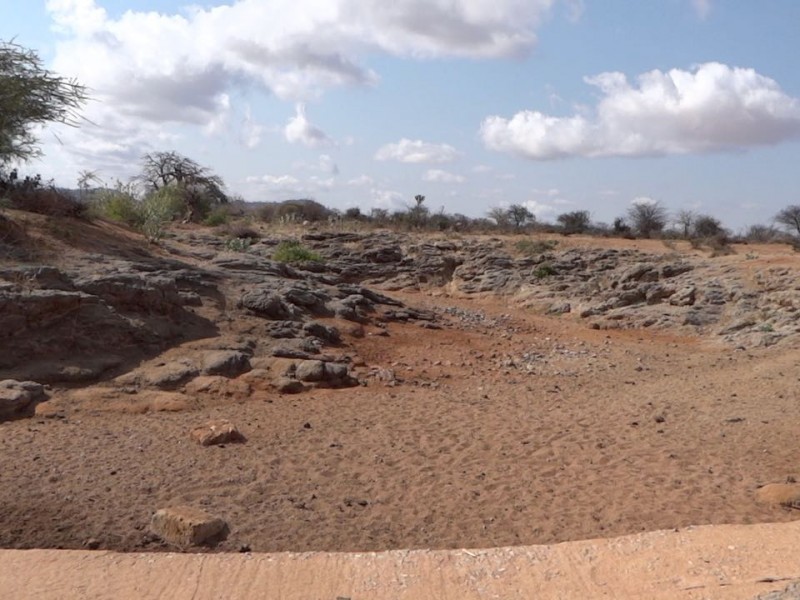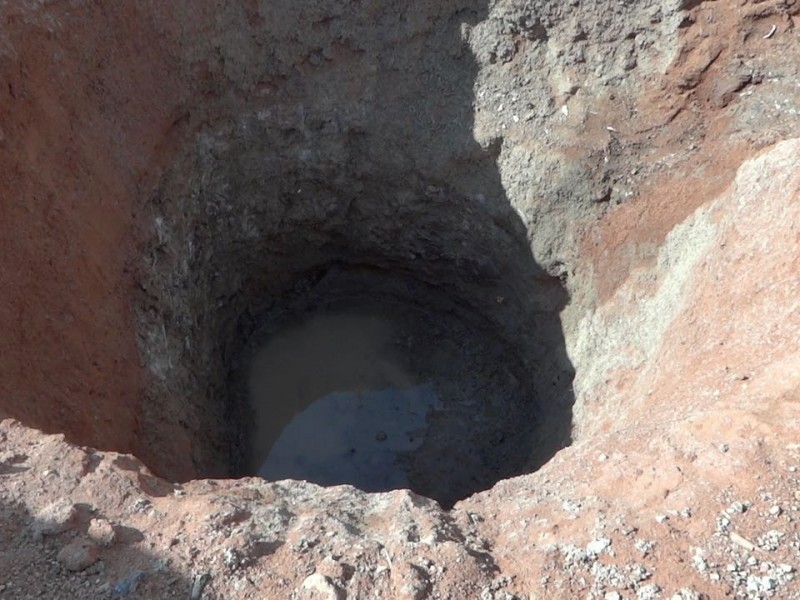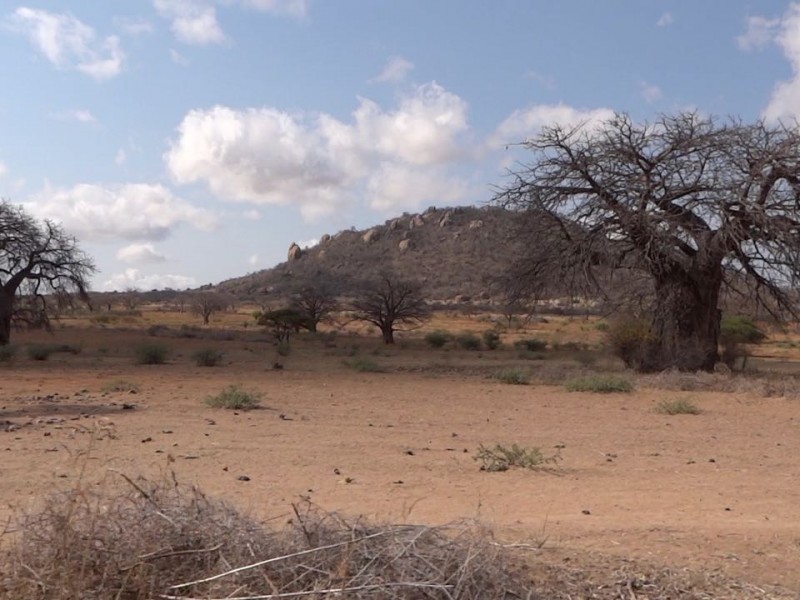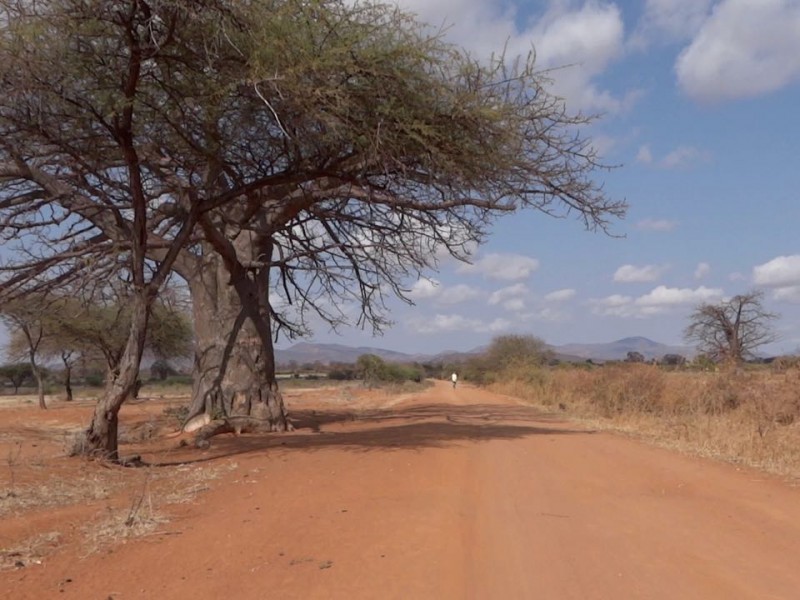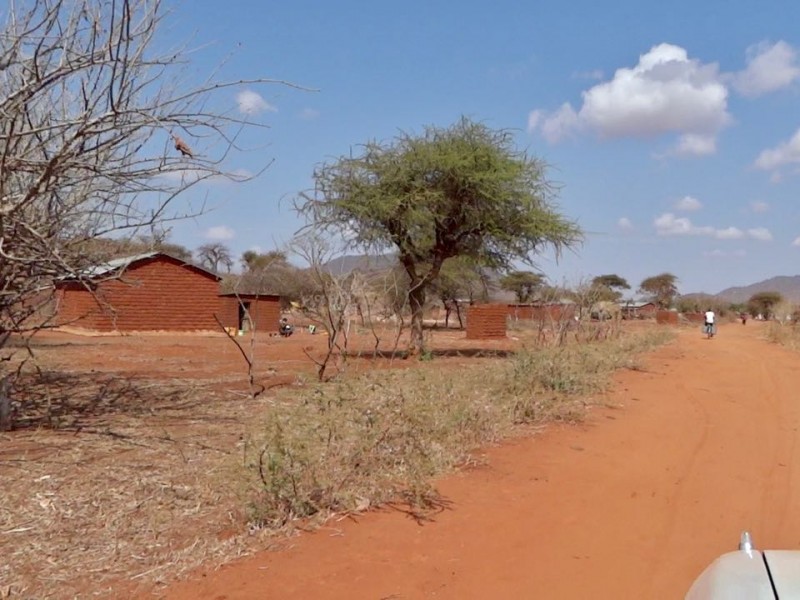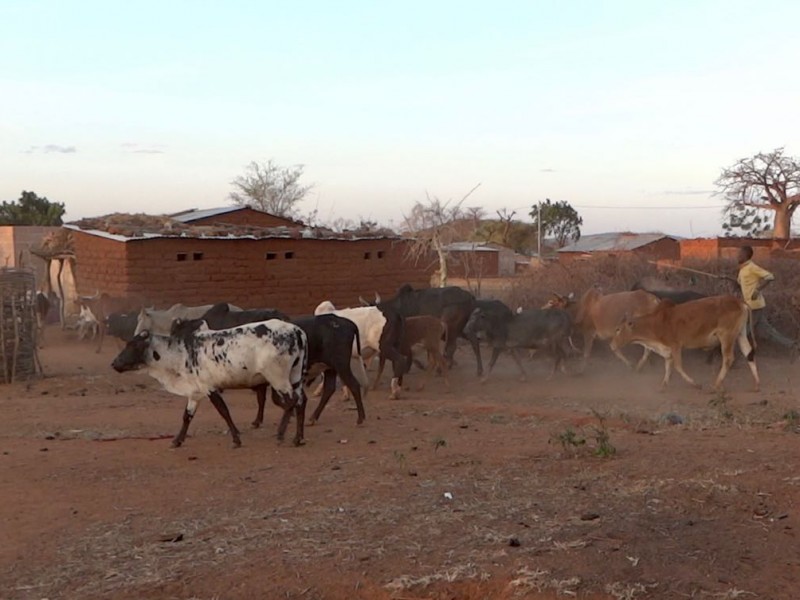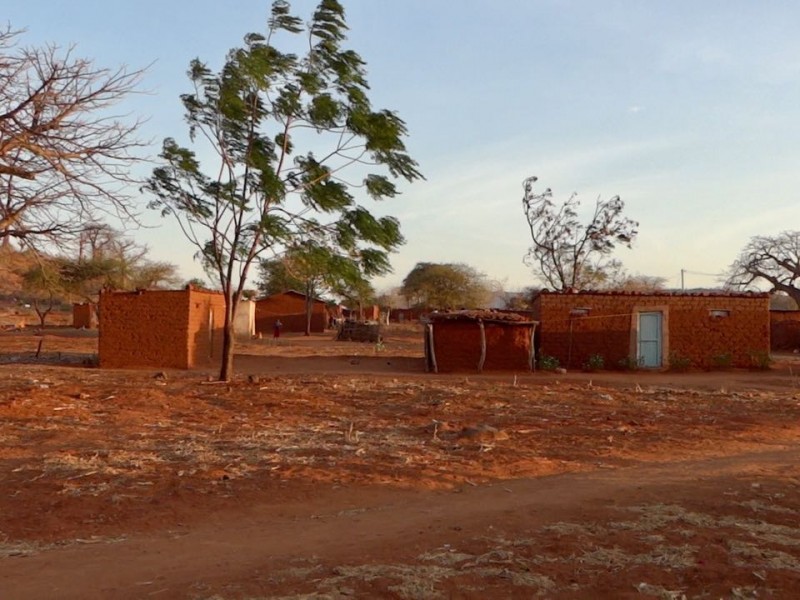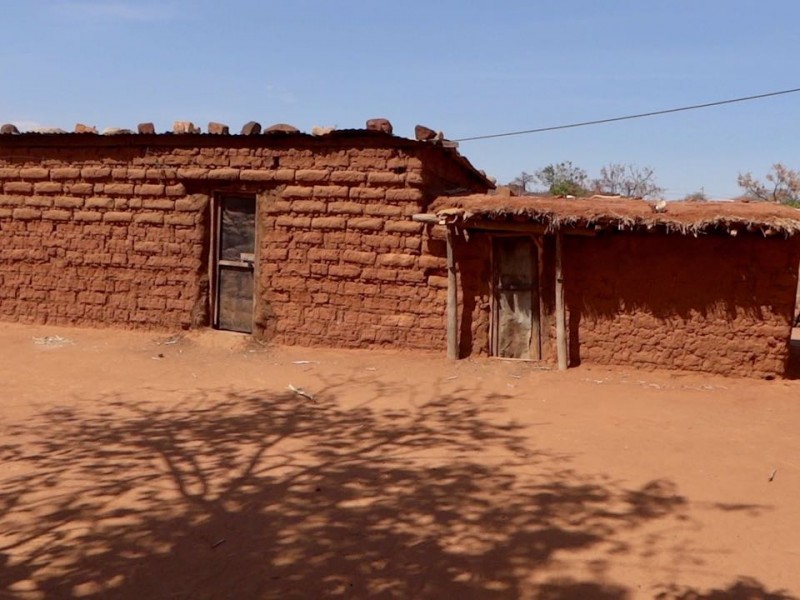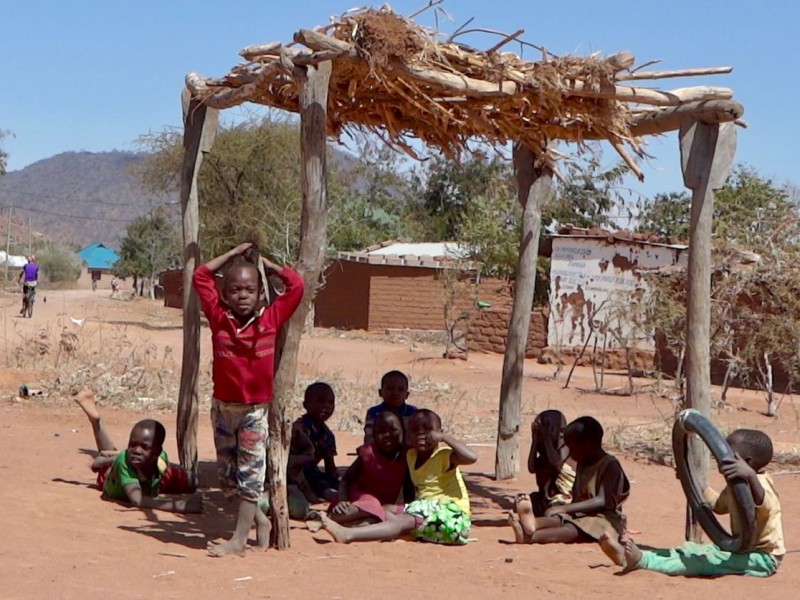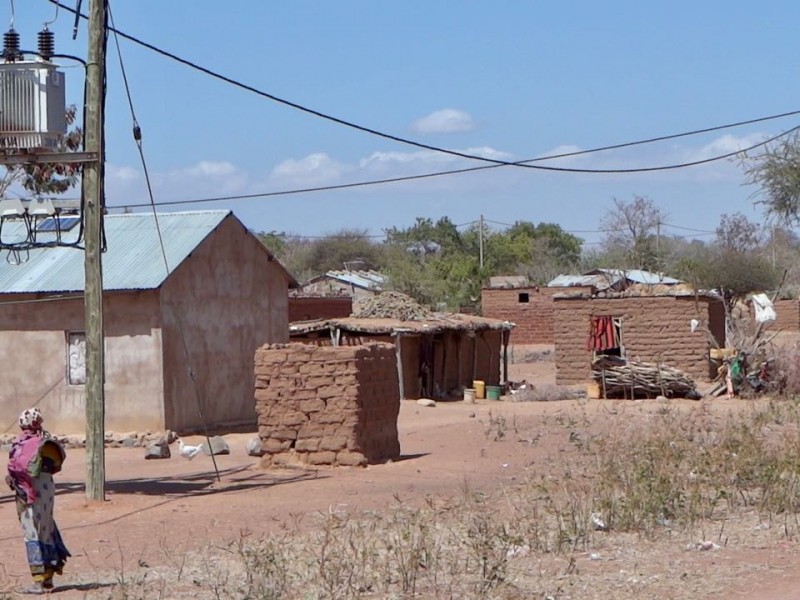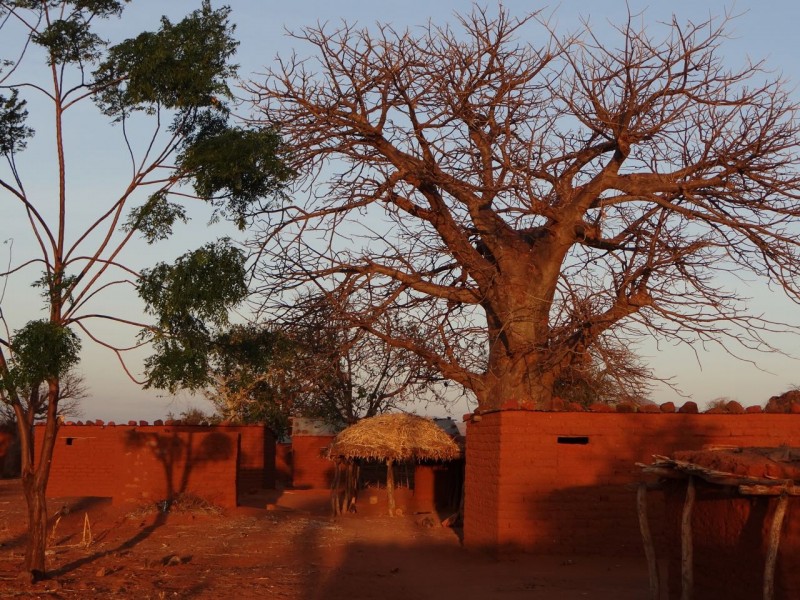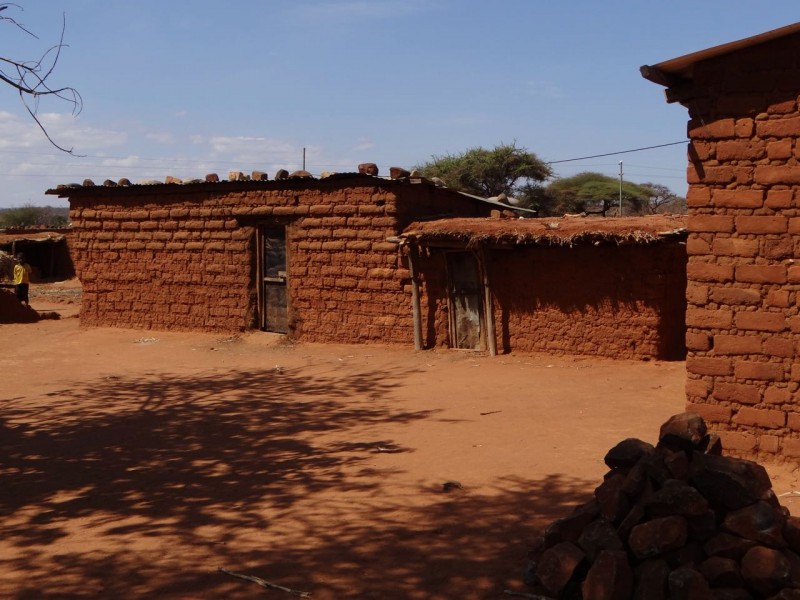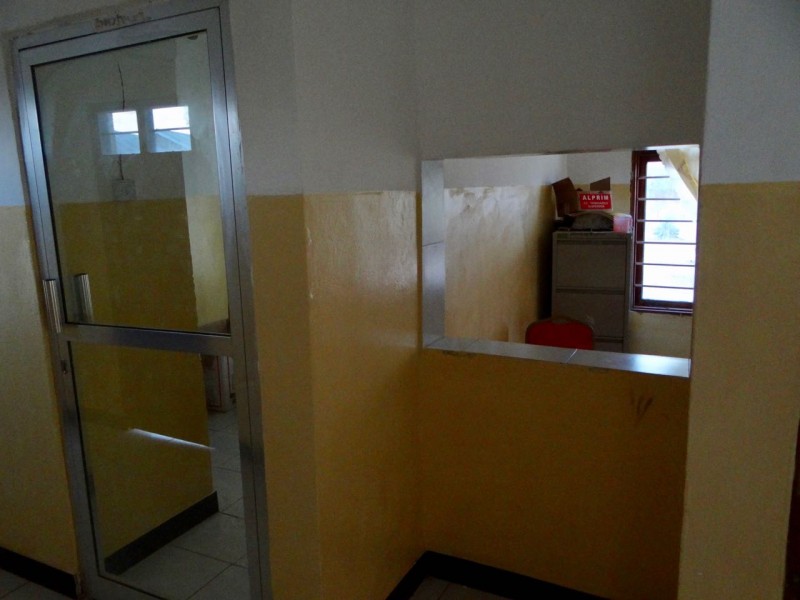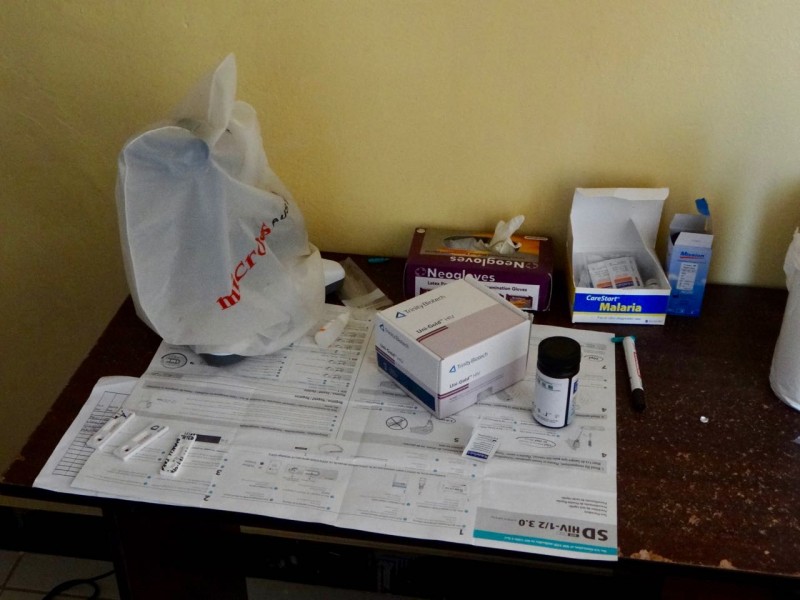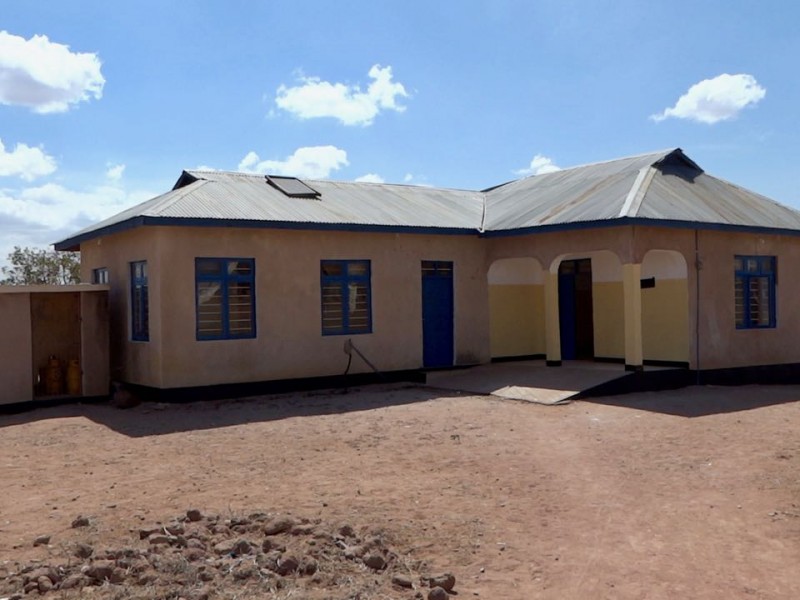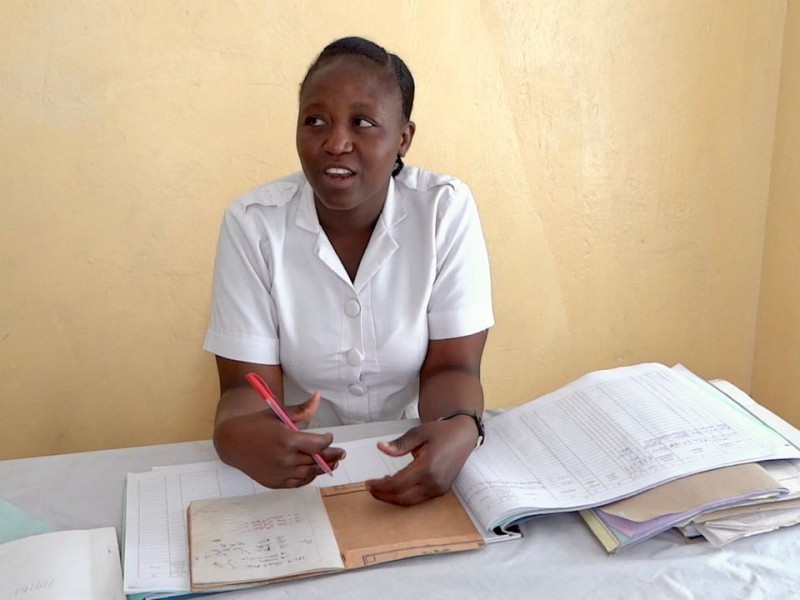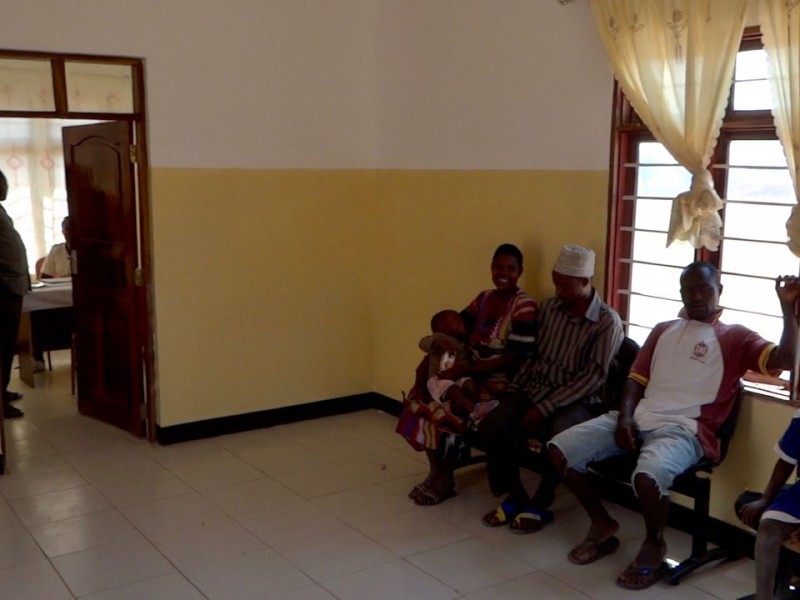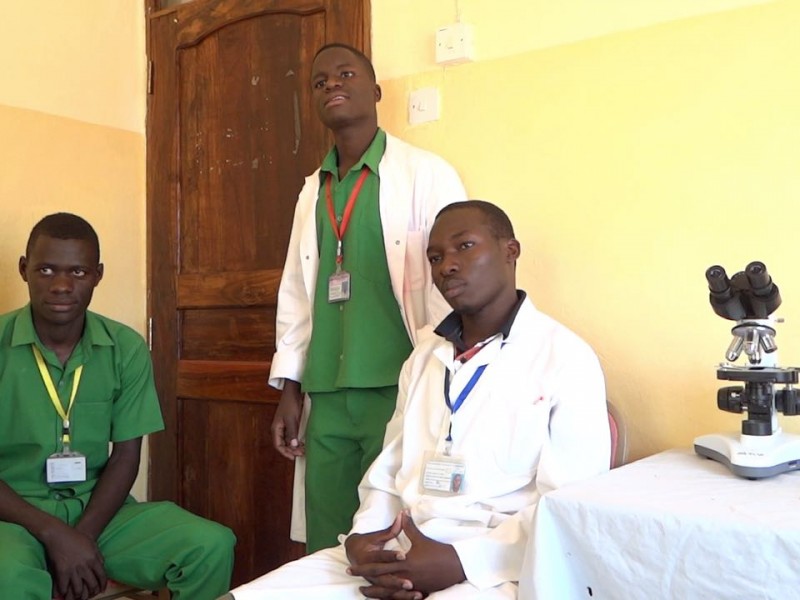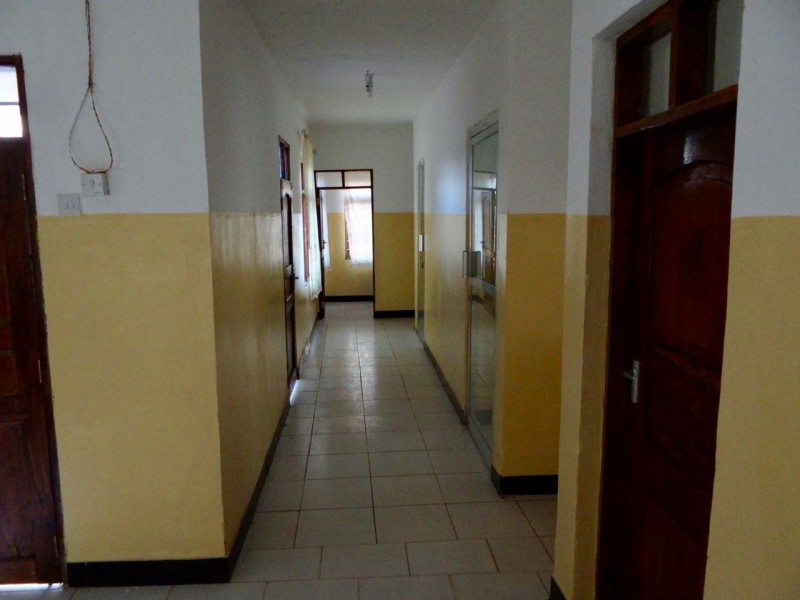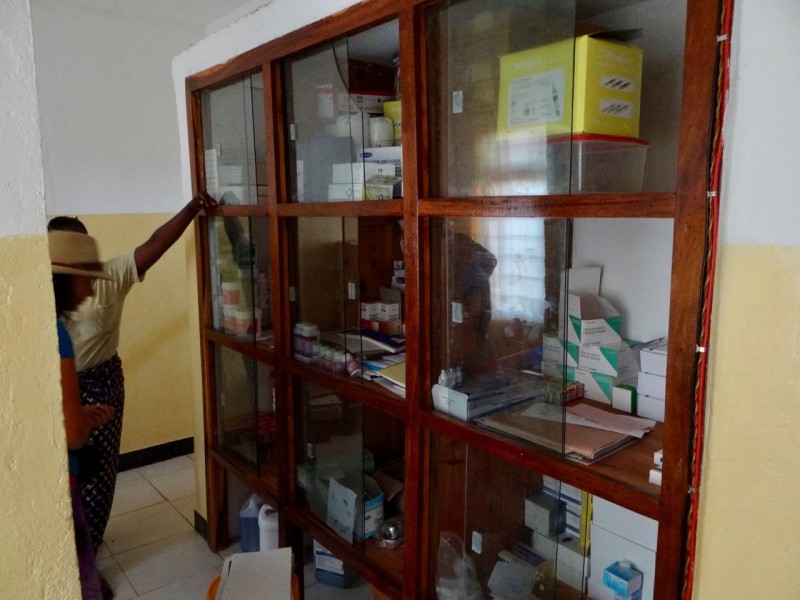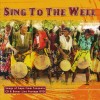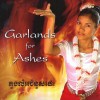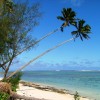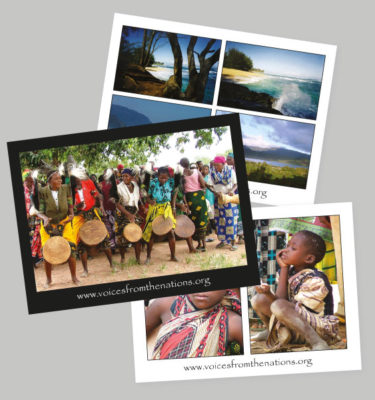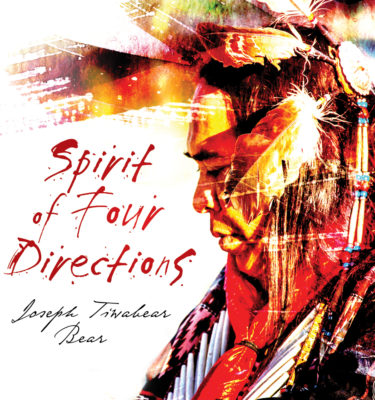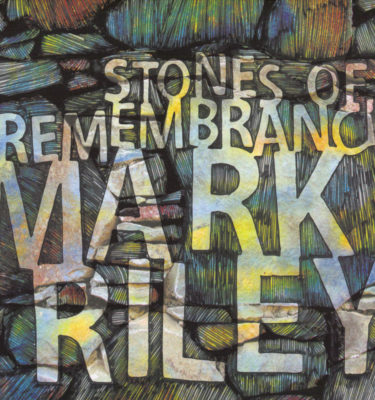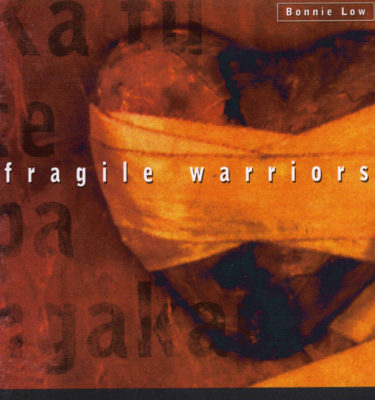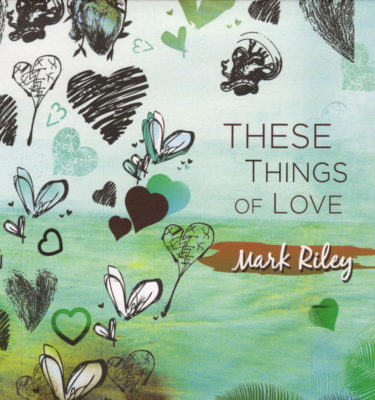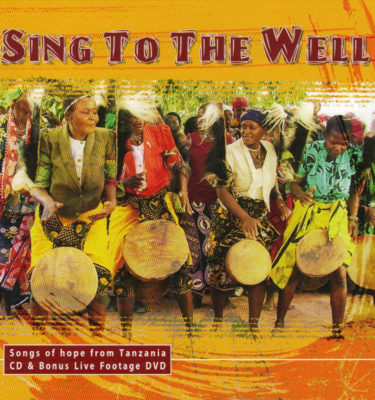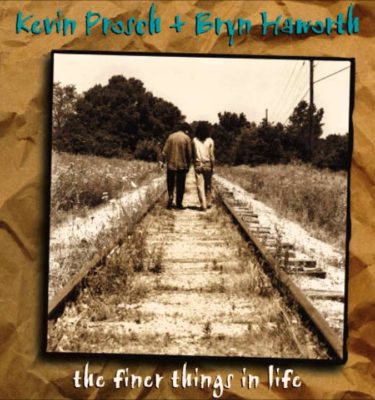- July 18, 2017
After 3 days of travel we were extremely excited as we headed towards Mnase village. As we drove in on a new track, the river beds were dryer than we had ever seen them – in fact one man said he had never seen them this dry – we found him digging 10 foot down to extract small amounts of water in the bone dry river bed. The size of the holes were immense, conical at the top to hold back sand and straighter when hitting rocks. His hard work had brought some success as he had cultivated a small patch of greens next to the river by using the water from these deep pits.
Mnase village was as dry as a bone and Bekah’s eyes were soon streaming as strong winds blew up dust into her eyes in almost desert like conditions. Because the fields were so bare, apart from a few decimated crops, plastic litter could be seen everywhere dotting the village landscape. In the past there was no plastic so all waste would decompose. No refuse collection needed then!
The chairman greeted us and their was formal welcomes and meetings with the village committee – there was much excitement at our return.
There are incrediblle changes in the community. Seth has encouraged the chairman that each visit we stay in a different part of town in order to continually build friendships. This time we are staying in a house with sofas / couches and amazingly, just connected 3 days ago, electricity! Everyone very pleased to see us – lots of warm welcomes.
Great to see the medical dispensary up and running – medicines in cabinet – microscope – solar panels and the electricity about to be connected. Full-time workers and fieldworkers. The reports of how much the dispensary has helped was very moving, and to hear how all the woman now have save births was so encouraging. The government’s hospital (was never finished) and is now a clinic for pregnant women – although it is also used for people who are severely ill and need a bed. At the moment it is a dorm for the field students.
One of the needs for the dispensary is a home for the workers. As they all live off site, they cannot respond to medical emergencies at night and out of hours. Maybe this is something we can help with in the future.

